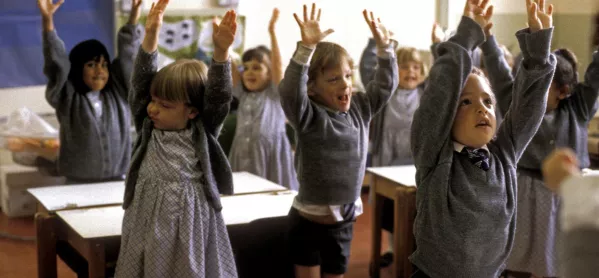Inequality will remain entrenched in Britain without urgent government action, the body charged with promoting social mobility has warned.
The Social Mobility Commission’s State of the Nation report, out today, finds that by age 6 there is already a gap of 14 percentage points in phonics attainment between children entitled to free school meals and those more advantaged.
By age 7, the gap has widened to 18 percentage points in reading, 20 percentage points in writing and 18 percentage points in maths.
And at age 11, disadvantaged pupils are 14 percentage points behind better-off peers in attainment. This rises to a 22.5 percentage gap at age 19.
Research: Attainment gap for summer-born pupils ‘persists at age 11’
Statistics: Huge increase in summer-born pupils delaying school entry
Opinion: ‘Parenting can bridge the disadvantage gap’
Dame Martina Milburn, chair of the commission, said: “Social mobility has stagnated over the last four years at virtually all life stages.
“Being born privileged means you are likely to remain privileged. But being born disadvantaged means you may have to overcome a series of barriers to ensure you and your children are not stuck in the same trap.”
The sixth comprehensive State of the Nation report uses new Office of National Statistics data to look at areas including early childhood, schools, universities, further education and work.
It finds that while disadvantaged pupils start school years behind their peers in terms of attainment, they can catch up with good schooling.
However, the latest figures show only 16 per cent of pupils on free school meals attain at least two A levels by age 19 compared to 39 per cent of all other pupils.
There are twice the number of disadvantaged 16- to 18-year-olds in further education than in school sixth forms, funding per student in the sector has fallen 12 per cent since 2011 and is now 8 per cent lower than for secondary schools (11- to 15-year-olds), leading to cuts to the curriculum and student support services that harm disadvantaged students.
Alastair da Costa, SMC commissioner and chair of the Capital City College Group, said: “As 75 per cent of disadvantaged 16- to 19-year-olds choose vocational education, the cuts represent a class-based segregation of the school system.”
The commission is today calling for “a significant increase” in funding for all 16- to 19-year-olds as a well as a special student premium for the disadvantaged that models the pupil premium in schools. Other recommendations are that the government should consider whether pupil premium funding is effectively targeted at supporting disadvantaged students, and whether differential levels of funding might benefit those with long-term disadvantage.
The report also states that increasing numbers of students from disadvantaged families are entering university but they are more likely to drop out before they graduate. Five years after graduating, students who were eligible for free school meals were paid 11.5 per cent less than their peers. The better off are nearly 80 per cent more likely to end up in professional jobs than those from a working-class background.
A spokesperson for the SMC said: “Inequality is now entrenched in Britain from birth to work and the government needs to take urgent action to help close the privilege gap.”
Damian Hinds, education secretary, said: “We want to create opportunity for everyone. Employment has risen in every UK region under this government, wages are outstripping inflation, the gap between disadvantaged pupils and their peers has narrowed and the proportion of 16- and 17-year-olds in education or apprenticeships is at its highest ever.
“We are supporting pupils to thrive at every stage - setting a 10-year ambition to boost children’s early reading and communication skills, transforming technical education and providing coaching for young jobseekers.
“But we must all work together to create change in the lives of the most disadvantaged. I welcome Dame Martina’s leadership in this area, shining a light on where we can continue raising the bar.”





